After a sluggish morning of glassing, I’m genuinely shocked to see a gaggle of mule deer shifting throughout the flat beneath us. This wide-open nation can play tips on the eyes so I look away after which again by my binoculars earlier than nudging the hunters seated on both aspect of me. I level to the largest deer main the group. They every nod after they see the herd.
Yasmine Hentati whispers, tentatively, that the lead deer might be a buck. I look over at Anthony Johnson, who appears even much less certain about that. However any excuse to get shifting is an effective one, so we resolve to reposition as quickly because the herd strikes out of sight.
It’s been powerful sledding for these two new hunters and their fellow rookies, who’re right here in Central Washington to finish a mentorship program with Hunters of Coloration, a non-profit that goals to get extra Black, brown, and Indigenous folks into looking. All eight mentees had been right here to scout and study new abilities within the spring, when the hills appeared filled with deer. It’s now day three of the weeklong program, and the group has but to identify a authorized buck.
We’ve all seen extra blaze orange than buckskin grey, and even the plush ag fields are devoid of antlered deer. (There are not any doe tags obtainable on this unit.) The topo map on the kitchen desk again at camp is roofed with optimistic sticky notes — locations the place we hoped to search out bucks however by no means did. It’s sunny and far hotter than it needs to be for October.

Photograph by Dac Collins
Not that anybody anticipated this to be straightforward, as a result of looking mule deer within the desert most assuredly isn’t. However neither is HOC’s mission of fostering an open air group whose members replicate the demographics of the nation.
“All we’re making an attempt to do is create alternatives for individuals who haven’t been capable of expertise this way of life,” says HOC’s founder and government director Jimmy Flatt. “We’re not in search of equal outcomes. We’re simply making an attempt to offer equal alternative.”
As for our quick alternatives, Johnson, Hentati, and I received’t see a buck this morning as we finally affirm the herd is all does. However crouching and jogging by the sagebrush will get our blood flowing, a minimum of, and I observe the 2 hunters as they transfer ably throughout the terrain, protecting to the attracts and gullies to keep away from skylining themselves.
I’m impressed by Johnson’s dedication to hunt as onerous as attainable although he’s already tagged out. On his drive from Seattle to the HOC camp, he stopped for a two-day solo hunt within the mountains and shot a pleasant mule deer buck — the primary deer he’s ever killed. However that doesn’t cease him from waking every morning at the hours of darkness and racking up the miles to attempt to assist another person get their first deer. In spite of everything, he’s right here for greater than only a punched tag.
Attempting to find a Mentor
The city island of Montreal isn’t the simplest place for a younger Black American to choose up looking — a minimum of not in Michael’s expertise. However the Southern California native says that other than overcoming the language barrier and the stricter gun legal guidelines that exist in Quebec, it’s simply as onerous to discover ways to hunt in San Jose if you don’t have anybody to indicate you the ropes.
“I didn’t know a single individual in my sphere who hunted or was even associated to anybody who hunted,” says Michael, who requested to have his final identify withheld because of the sensitivity round firearms in his occupation. “Ultimately I obtained all of the background checks accomplished [in Montreal] and I purchased a shotgun. However I simply felt like I couldn’t truly get into looking as a result of nobody I knew ever hunted, and I actually had nothing in frequent with the folks in my hunter ed course.”
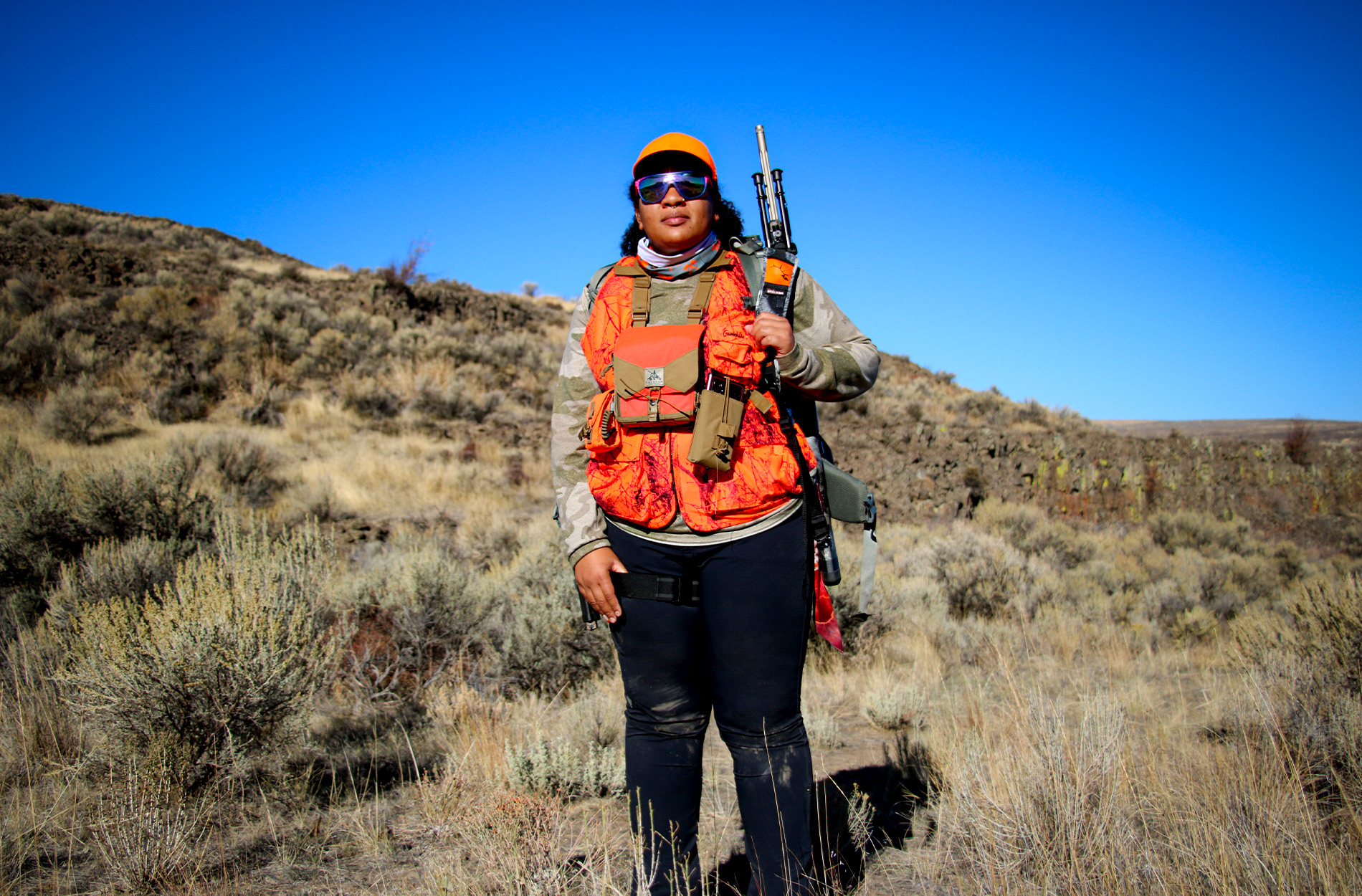
Photograph by Dac Collins
Michael’s want to hunt caught when he moved again to the States, and in 2022, after he actually Googled the phrase “hunters of shade,” he met Malcolm Legette, the ambassador for HOC’s Washington State chapter. (The group has established chapters in 14 states since its founding in 2020, with members in 47 completely different states.) That summer time, Michael harvested his first salmon whereas fishing with Legette on the Duwamish River. The next spring, Legette helped him tag his first gobbler.
“It was a life-changing expertise at a time after I wasn’t actually having that many new experiences,” Michael says. “And it was form of highly effective. Like, if you’re looking, you’re excited, you’re chasing one thing. After which when it’s on the bottom taking its final breath, you’re like, ‘Oh, I did that.’”
A lot of the different mentees expressed an analogous detachment from looking throughout their adolescence. Hentati, a wildlife biologist and PhD candidate who grew up outdoors Washington D.C., says she’d lengthy seen looking as an unethical approach to work together with the pure world. Learning wildlife ecology in faculty helped her make the connection between looking and conservation. And by the point she began watching MeatEater in 2020, Hentati was formally hunting-curious. She drew a buck tag within the Cascade Vary that fall and obtained her ass kicked in the easiest way attainable.
“It was undoubtedly a gateway drug, and I believed, ‘Perhaps that is one thing that I must act on.’ It was simply so intimidating,” says Hentati. “I used to be like, ‘I actually need to do that stuff,’ however I didn’t know what to do.”

Photograph by Dac Collins
Even Johnson — who was formally topped star pupil after exhibiting as much as camp with a buck behind his Subaru — lacked an actual mentor rising up within the Twin Cities. A member of the Pink Lake Nation, his connection to his tribe’s wealthy looking heritage was severed lengthy earlier than he was born.
“I current as form of a white-passing individual, and I’ve all the time beloved that duality of being each white and Native. However I didn’t actually really feel like I slot in with the [mainstream] looking tradition that exists immediately,” Johnson says. “I actually needed to carve my very own path into looking and use it as a way of connecting with my meals and tradition.”
A Want for a New Sort of Looking Org
Flatt, HOC’s cofounder, was raised by a Venezuelan mom and a Pacific islander father who taught him to hunt as a child. Rising up, he would attempt to get his Black and brown buddies in Northern California to go looking with him and his dad. “We don’t try this,” or “that stuff is for white guys,” had been the commonest responses he obtained.
As he grew older, his love for the game solely elevated. He all the time had his dad to chase geese, elk, and turkeys with. Till he went to Oregon State to play baseball and examine engineering, after which all of a sudden he didn’t. He was additionally reminded throughout his faculty years of the solutions he obtained when he tried recruiting his buddies as a child.
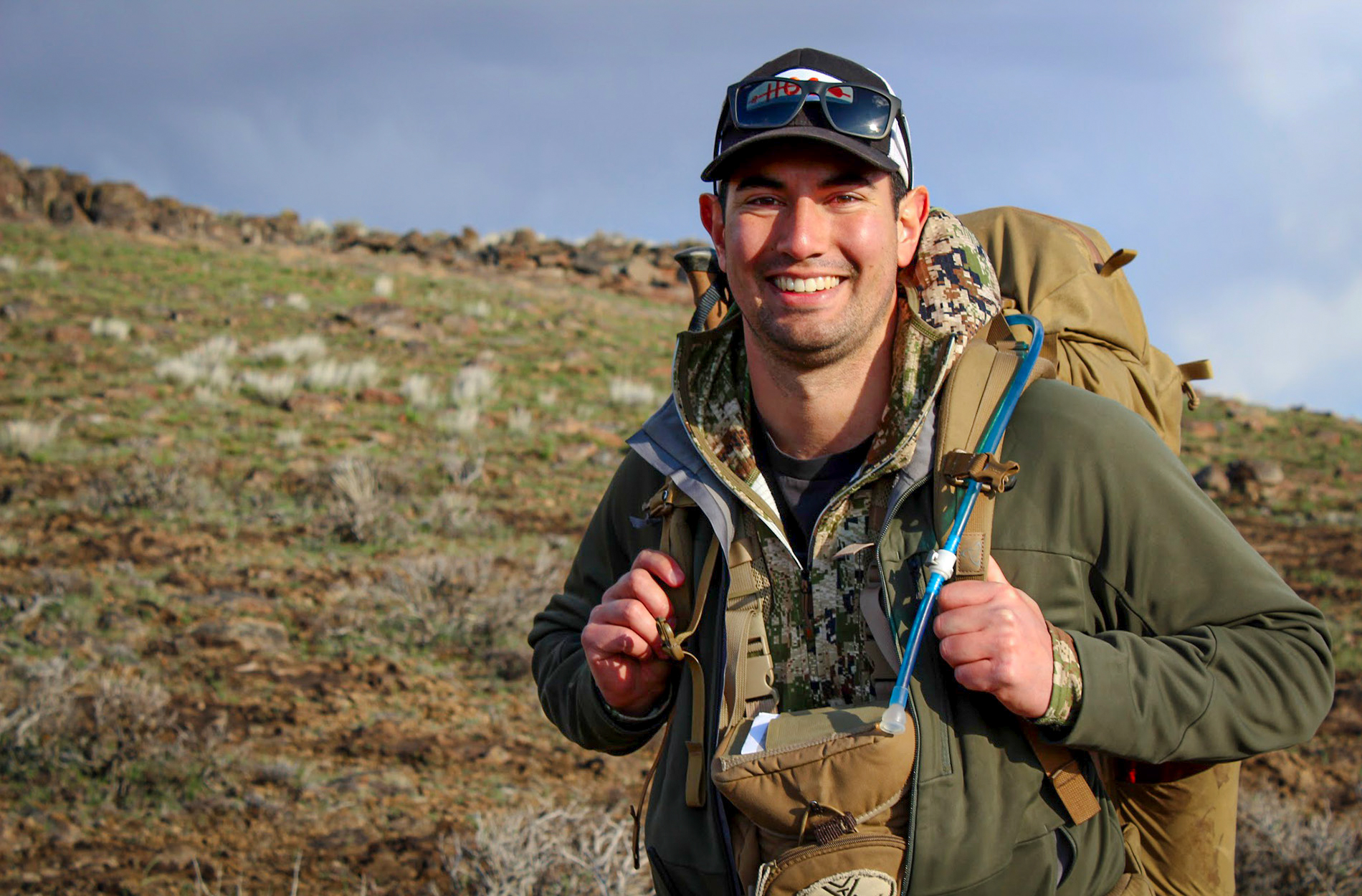
Photograph courtesy HOC
Flatt was experiencing what U.S. Fish and Wildlife Service surveys clearly illustrate — that the overwhelming majority of hunters in America are white. Within the USFWS’ 2016 survey, 97 % recognized as white. Its more moderen survey from 2022 reveals some change in these demographics, with roughly 76 % of respondents figuring out as white. However these numbers nonetheless don’t precisely replicate the racial breakdown of immediately’s U.S. inhabitants, which is roughly 58 % white, in response to the U.S. Census Bureau.
Flatt would finally discover a kindred spirit in Thomas Tyner, a star working again at Oregon State who obtained hooked on looking after considered one of his coaches took him out. However Tyner confronted a number of the identical struggles as he tried to increase his personal circle within the open air.
“I simply needed some buddies to go looking with,” Flatt says about his earliest goals to begin a gaggle like HOC. That seed of a dream, which was nurtured by Tyner throughout faculty, would finally sprout with assist from Lydia Parker, Flatt’s fiancé.
The previous government director and a cofounder of Hunters of Coloration, Parker is a member of the Walker Mohawk Band of the Six Nations of the Grand River. She’s additionally an adult-onset hunter who didn’t choose up a gun or a bow till she met Flatt at Oregon State. Parker now considers herself the unique proof of idea for the group, whose motto is “the Open air are for Everybody.”
Flatt is keenly conscious that there are many different looking mentorship packages. The issue with lots of them, he says, is that they have a tendency to underestimate how a lot a rank newbie has to study and digest with the intention to discover success and keep it up. So, HOC breaks up its packages into two blocks.

Photograph courtesy HOC
For the Western big-game program, the group meets within the spring for every week to concentrate on training. It’s not till the autumn, after they’ve spent the summer time honing their abilities, that the mentees actually get after it. And even then, Flatt says, “the taking comes final.”
He explains that the group all the time incorporates a component of conservation work into this system to ascertain the precept of giving again to the land earlier than you are taking something from it. (Throughout this system in Washington, we spent a day flattening outdated barbed wire fences with the Nature Conservancy.)
By this level, the idea goes, the mentees could have ready themselves sufficient to confidently hunt in earnest. However the actual worth in spending a lot effort making ready is that it provides the contributors time to ascertain a gaggle of friends. Not solely have they got skilled mentors who they’ll look to for solutions, additionally they have a minimum of considered one of what Flatt had all the time longed for: a looking buddy.
Obstacles to Changing into a Hunter
Again at camp that afternoon, Flatt appears somewhat anxious. Because the group chief and the primary coordinator of this occasion, he’s hopeful that a minimum of a number of the mentees can fill their tags.
Discovering sport isn’t usually the toughest a part of working this program, Flatt explains. One of many major challenges is recruiting sufficient skilled mentors to fulfill the overwhelming demand they’ve gotten. He says that they had to decide on between 91 candidates to fill the eight spots obtainable for this specific hunt.
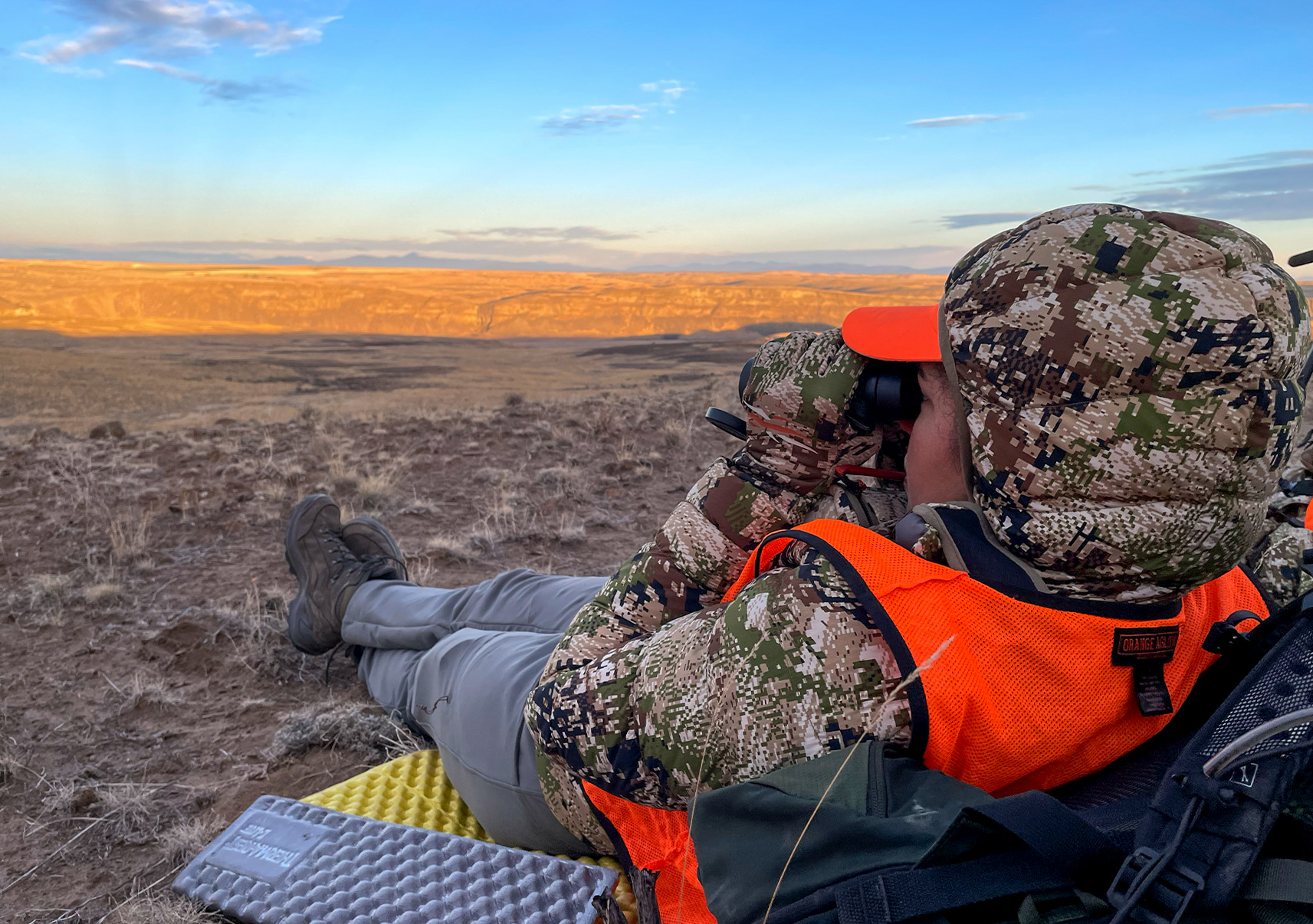
Photograph by Dac Collins
Most of those aspiring hunters don’t know the place else to start. They take a look at the bigger open air group (once more, overwhelmingly white and predominantly male) they usually see extra boundaries than entry factors. What these boundaries seem like is determined by the person and their life experiences. For instance, Flatt says he’s labored with mentees who’ve felt uncomfortable carrying a gun on public land. He’s additionally gotten pushback from some white hunters when he brings this up.
“One of many issues that we’ve all the time heard once we speak about this stuff is: ‘The place’s the info? The place’s the proof?’” Flatt says. “So, we did a examine.”
Led by researchers at Clemson College, Baylor College, and the Wildlife Administration Institute, the examine tried to establish the actual and perceived boundaries dealing with folks of shade by asking greater than 1,200 Black American hunters about their experiences within the sport. The vast majority of respondents had been from the South, and round 28 % stated they’d both encountered or witnessed some kind of race-related incident whereas looking. These ranged from unusual appears to be like and racial epithets to bodily threats and violence.
Learn Subsequent: Why We’re Failing to Recruit African American Hunters (and How one can Repair It)
The authors concede that the examine doesn’t supply a full image of the challenges dealing with would-be hunters of shade as a result of their pool of respondents was restricted to Black hunters who had looking licenses — it didn’t embrace individuals who’d by no means purchased one. When respondents recognized what would possibly restrict their looking sooner or later, a standard response was the dearth of a community of hunters they may establish with.
“Individuals demonstrated a transparent starvation to be a part of a like-minded group, whether or not that be in an off-the-cuff setting or as a part of a corporation or membership that features Black hunters,” the authors write. Greater than a 3rd of respondents stated “particular person mentoring” was their most popular technique for encouraging extra Black hunters to take part, and this technique ranked No. 1 general.
Some minorities who hunt, particularly these within the South, have a deep-seated mistrust of white hunters and the teams that signify them, and Flatt says the examine printed in April helps quantify these emotions of unwelcomeness. He’s additionally heard from white hunters who’ve accused HOC of “reverse racism” — the concept that addressing racial inequality results in disadvantages for these within the majority.
Flatt emphasizes that although HOC’s mission is targeted on folks of shade, the group isn’t making an attempt to exclude white hunters or tear down traditions. Neither is it afraid to level out the racial divides that persist in trendy American looking tradition.
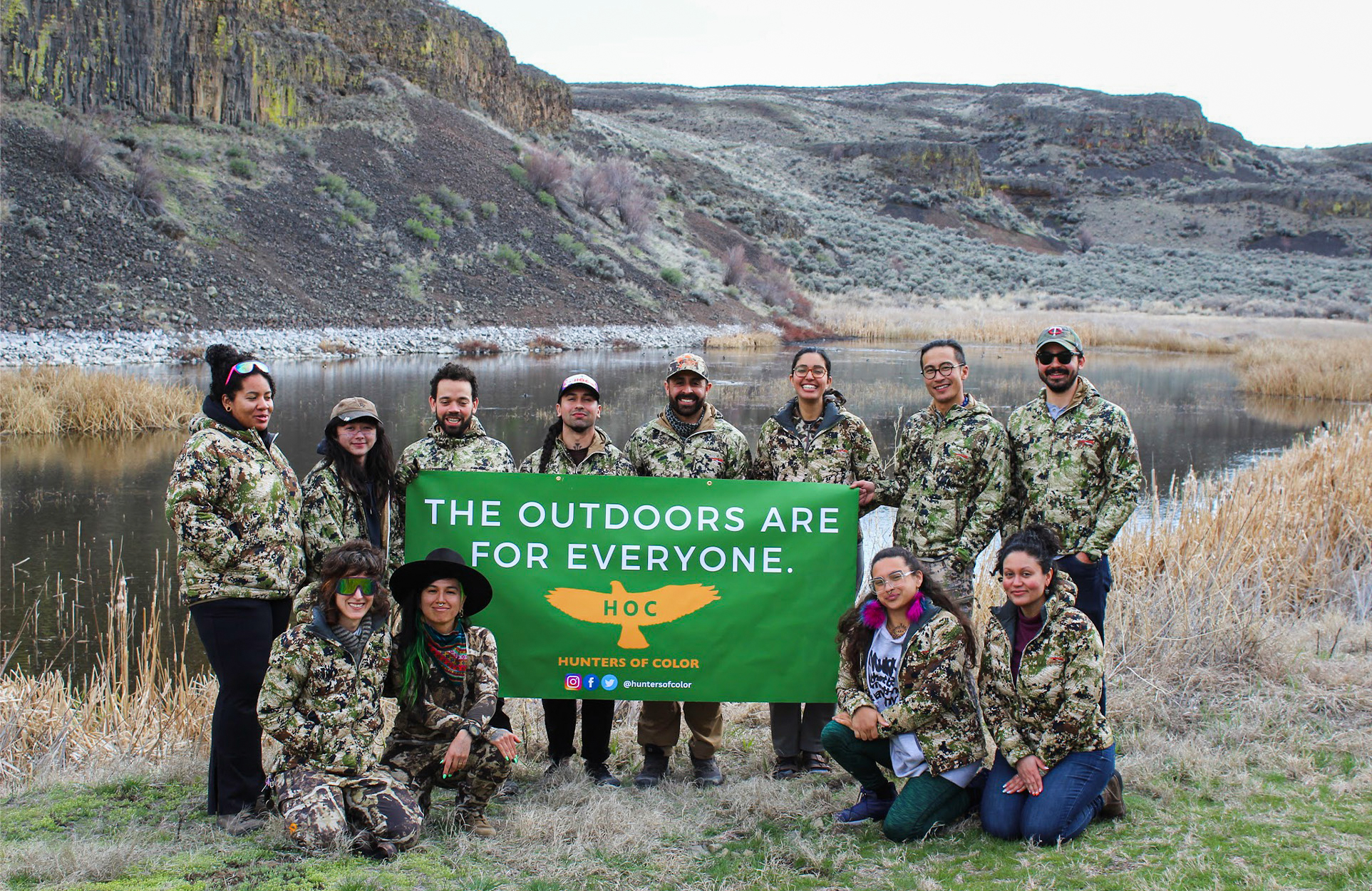
Photograph courtesy HOC
HOC isn’t the one group within the looking trade to choose up on this cultural dissonance. A number of firms, together with Sitka Gear, Weatherby, onX, and Lowa Boots have sponsored HOC’s mentorship packages.
“Entry has been a core worth at onX since our inception, and finally, entry to alternative is part of that,” onX basic supervisor Cliff Cancelosi tells OL in an e mail. “We’re proud to assist Hunters of Coloration’s mission in guaranteeing folks from numerous backgrounds begin from a stable basis of their looking journey.”
These manufacturers acknowledge the monetary boundaries dealing with all new hunters, no matter race, they usually’ve helped decrease that hurdle by providing monetary and product assist.
“There’s a important hole in participation for folks of shade within the looking and conservation communities, and HOC’s mentorship packages welcome over a thousand new hunters yearly,” Sitka’s director of conservation and advertising and marketing Lindsey Davis tells OL in an e mail. “Their work addresses recruitment that’s crucial for the way forward for looking and conservation.”
“To me, it’s easy. We wish extra folks advocating for this factor that we love.”
Jimmy Flatt
Flatt says the group has additionally gotten assist from a number of conservation non-profits. Together with the Nature Conservancy, which allowed us to hunt their land in Central Washington, Backcountry Hunters and Anglers and the Nationwide Deer Affiliation have partnered with HOC to host mentorship packages focusing on under-represented communities. NDA director of looking Hank Forester says these packages have change into a key focus of the nationwide R3 motion (the push to recruit, retain, and reactivate hunters) because it evolves within the twenty first century.
“Lots of trendy R3 considering and significance has been placed on diversifying the looking inhabitants. One of many major causes folks don’t hunt is as a result of they didn’t develop up round it, and that’s very true for urbanites and minorities,” Forester says. “However the way forward for looking and conservation in America goes to be pushed, partly, by these city populations. We have to proceed to unfold the phrase, to ask others, to create advocates, and to even simply create understanding.”
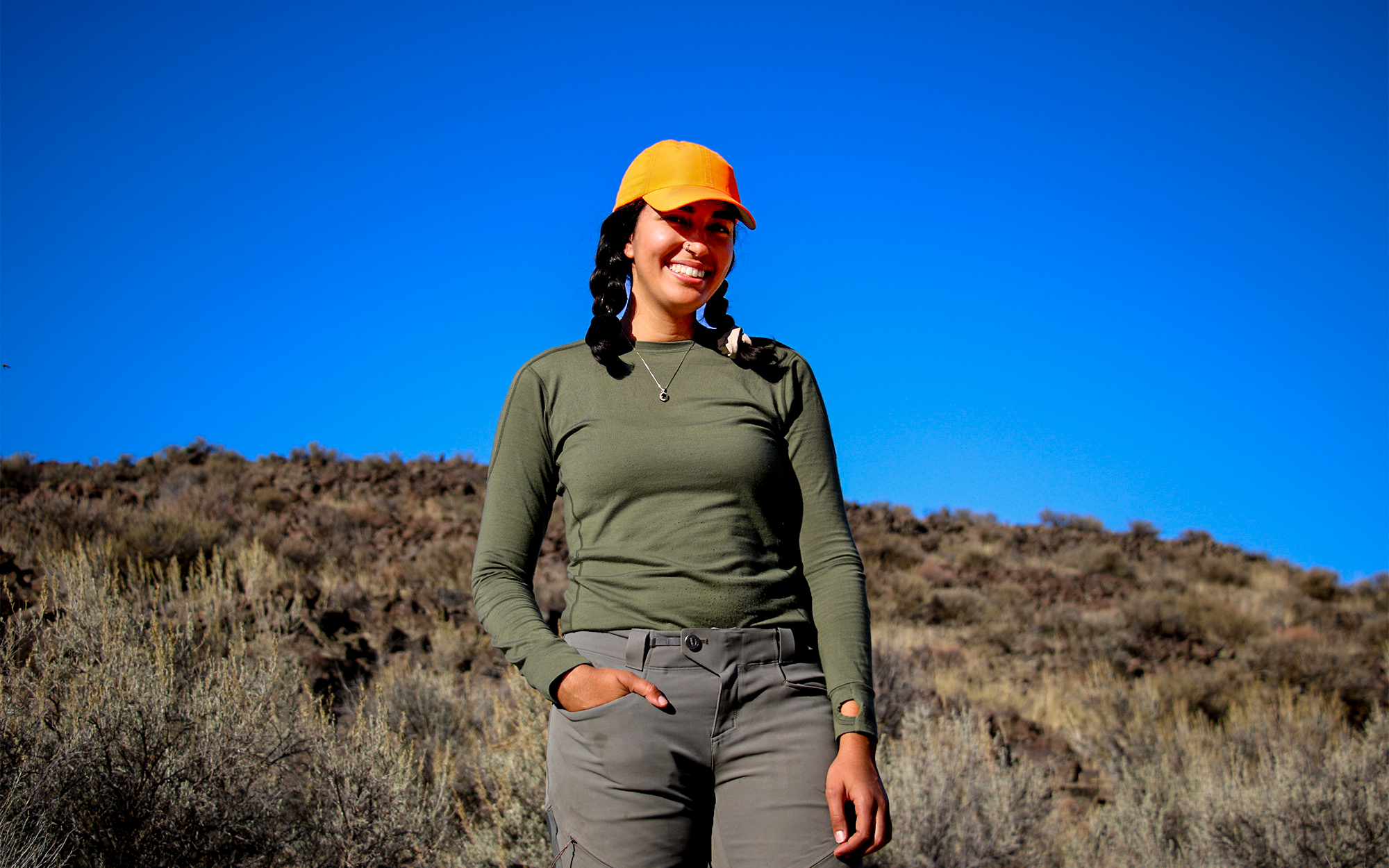
Photograph by Dac Collins
As a result of it’s been onerous to recruit sufficient minority mentors to fulfill the demand, Flatt says HOC has all the time leaned on white mentors to fill the gaps. He additionally acknowledges that if the group’s finish objective is to foster inclusivity, it’s additionally their accountability to steer by instance.
“We have to appropriate this connotation that white persons are the issue, or that Black and brown persons are making an attempt to take their alternatives away,” Flatt says. “To me, it’s easy. We wish extra folks advocating for this factor that we love.”
One of many challenges that’s troublesome to articulate is that when a gaggle like HOC brings race to the forefront, white outdoorsmen are likely to get hung up on their very own insecurities. I discovered myself fighting this throughout the mentored hunt. One night time, whereas sitting throughout the desk from Flatt with a bottle of single malt between us, I lastly labored up the nerve to share what had been weighing on my thoughts.
After I was driving to camp, and even after I sat down for dinner the primary night time, I used to be painfully self-conscious. I used to be by no means handled like an outsider, I informed him, however I couldn’t assist considering how ridiculous it should appear for a white dude like me to be right here photographing, interviewing, and writing in regards to the group. To place it plainly, I felt like I didn’t belong.
“Man, I’m sorry to listen to that. However I additionally need you to suppose again and attempt to keep in mind that feeling,” Flatt stated. “As a result of that’s how I’ve felt in just about each looking camp I’ve ever stepped foot in.”
Heritages Misplaced, and Hunters Discovered
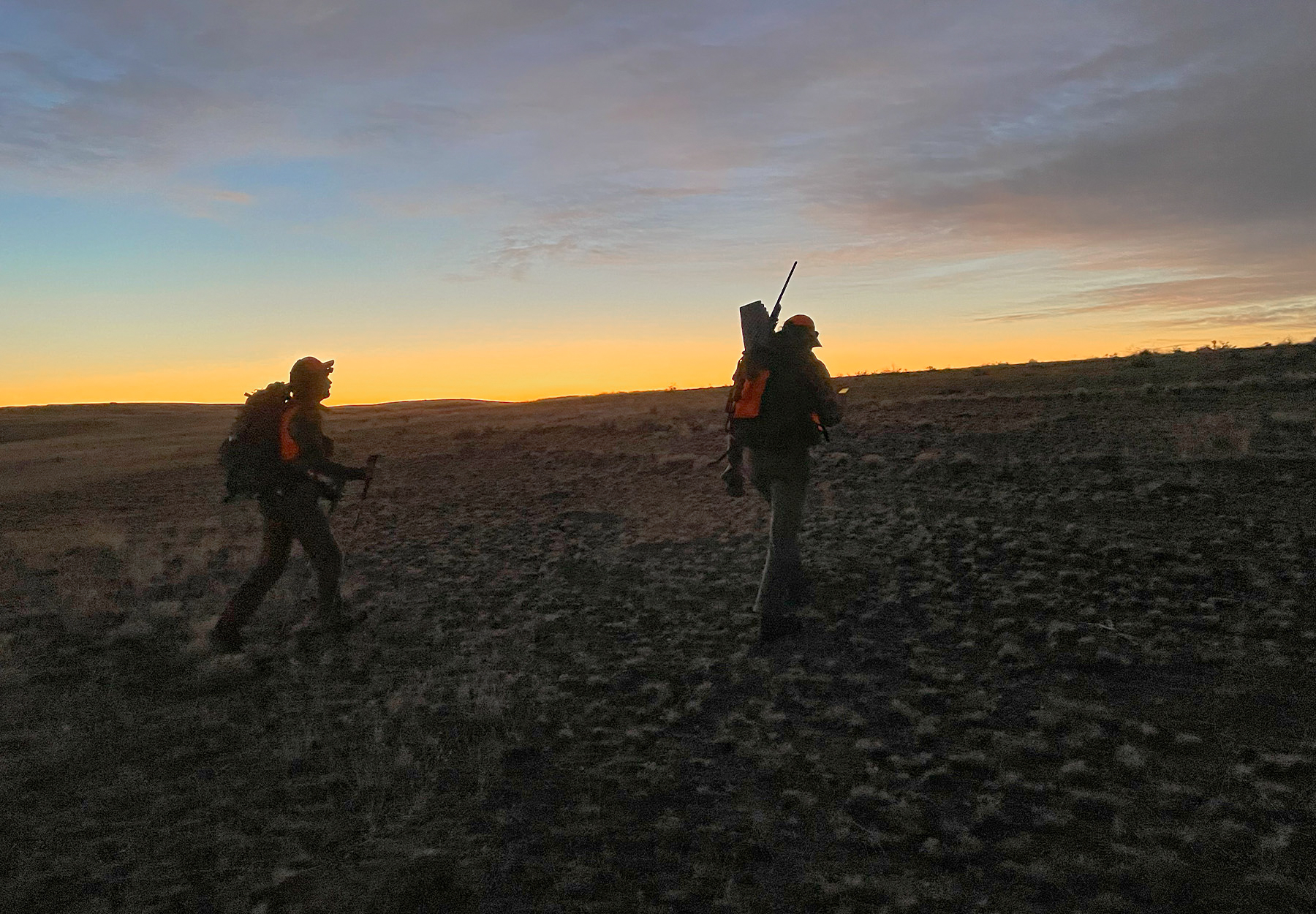
Photograph by Dac Collins
The morning after we noticed the group of does, Johnson, Hentati, and I return to the identical location with Ryan, one other mentee. (He requested that we use a pseudonym as a substitute of his precise identify over considerations of harassment.) A tattoo artist from Portland who has the phrases “Cry Child” inked throughout his knuckles, Ryan additionally lived on the streets of Honolulu for a time.
In geographical phrases, the Hawaiian metropolis is the closest he’s ever been to his familial homelands. Ryan’s grandparents defected from North Korea throughout the Korean Warfare, and his household has by no means returned to the mountains the place their ancestors hunted Sika deer and different sport for hundreds of years.
“It’s bizarre as a result of simply stepping foot into this world, I really feel like I’m leaning into this factor that any person else earlier than me was doing sooner or later,” Ryan says. “And that second-hand information remains to be there, however it’s additionally a privilege, proper? To have entry to those cultural lifeways. After which, for no matter purpose — due to battle or one thing else — you’re completely faraway from that.”
Earlier than discovering HOC, Ryan made a concerted effort to re-enter that world on his personal. He’s been on a yearslong quest to kill a blacktail — one which was almost fulfilled in 2022, when he obtained a shot alternative throughout a solo hunt with a borrowed rifle.
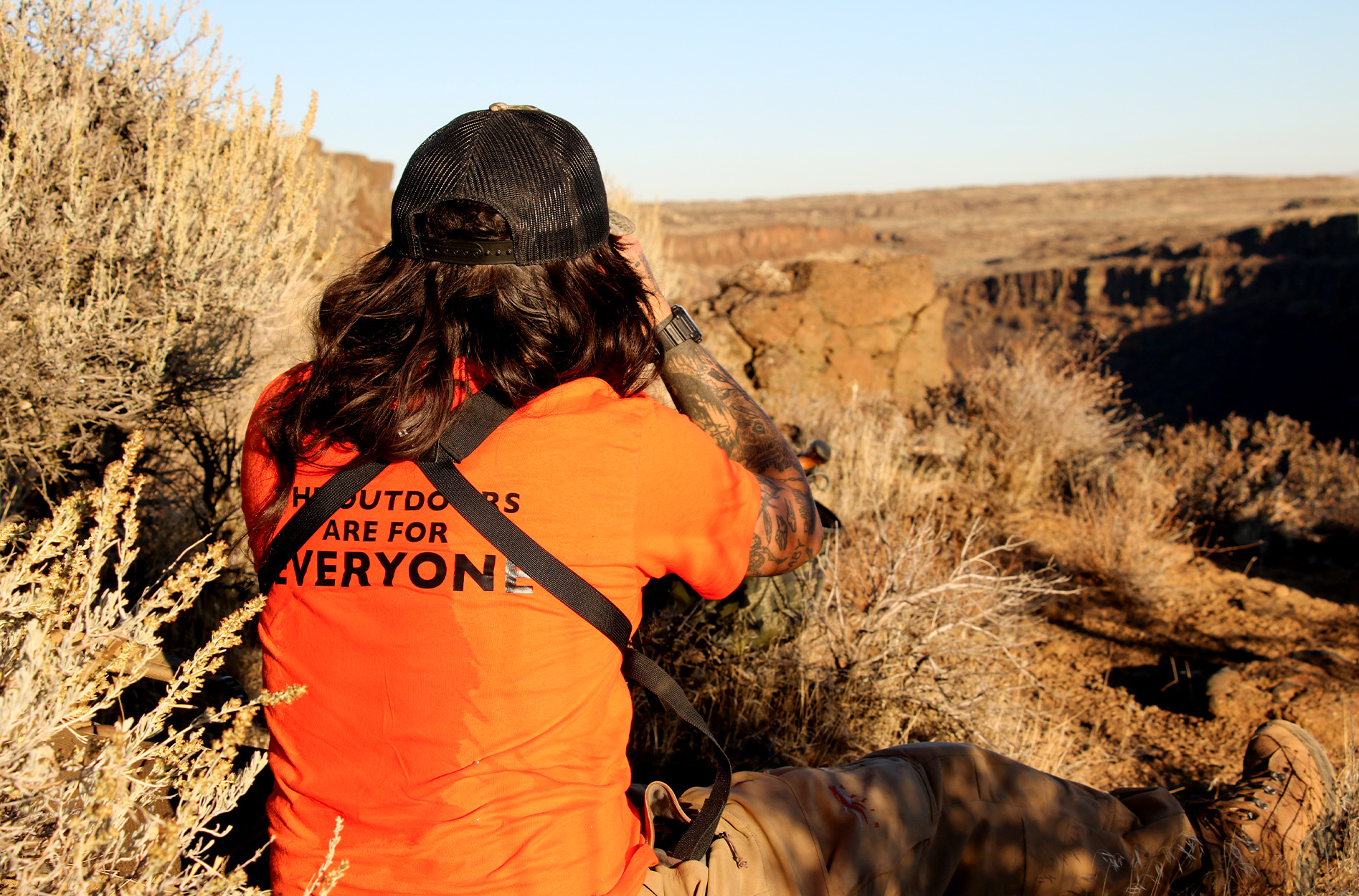
Photograph by Dac Collins
“I couldn’t pull the set off,” Ryan says. “I feel it was as a result of I used to be alone. However I used to be simply — scared.”
Someday round noon, because the 4 of us head to our subsequent glassing level, we spot a pair of hunters on a faraway ridge. We keep our course and finally they drop into one other drainage and out of sight. I don’t suppose a lot of it on the time, however it’s solely our power in numbers that retains Ryan from turning round. As a trans one that appears to be like completely different than most hunters, he’s cautious of strangers when out within the area.
“If I used to be in that state of affairs and looking on my own, I’d be very nervous in regards to the guys on that ridge,” Ryan says later that night. “Behind your thoughts, issues that may not be very possible change into attainable … and I don’t know. It simply makes me nervous.”
Learn Subsequent: Looking And not using a Mentor for the First Time Is Onerous—So Modify Your Expectations
Clearing the subsequent rise, we see a lone coyote working full-tilt over the open floor. Hentati tracks it together with her binos till it disappears into the comb, whereas Johnson cracks a joke in regards to the “large nasty buck” it should’ve smelled. Ryan laughs, all traces of worry now gone.
And never lengthy after the mentorship program ends, Ryan will return to Oregon’s Coast Vary with one other blacktail tag. Looking alone along with his personal rifle, he’ll get one other alternative on a shooter buck. Solely this time, he’ll make it rely.
When Cultures Conflict
Flatt and the opposite HOC mentors would be the first to acknowledge that they aren’t the one ones working to advertise equal alternative within the open air. Together with BHA and NDA, organizations like Outside Afro, Minority Outside Alliance, and Artemis Sportswomen are serving to educate extra ladies and minorities about looking, whereas initiatives like Black Duck Revival and the Black Heritage Hunt give these hunters a spot to collect, swap tales, and study from each other.
There are, nonetheless, some folks and established teams who’re hesitant to assist these modifications. Some people would describe what HOC is doing as “woke-ism” and say there’s no want for it in looking. (Flatt says that HOC has been accused at occasions of being too argumentative or “problematic” when discussing race-related matters.) On the flipside, there are numerous giant nationwide teams and highly effective people who work day-after-day for range, fairness, and inclusion of their respective fields, however who despise the concept of looking and utilizing firearms.
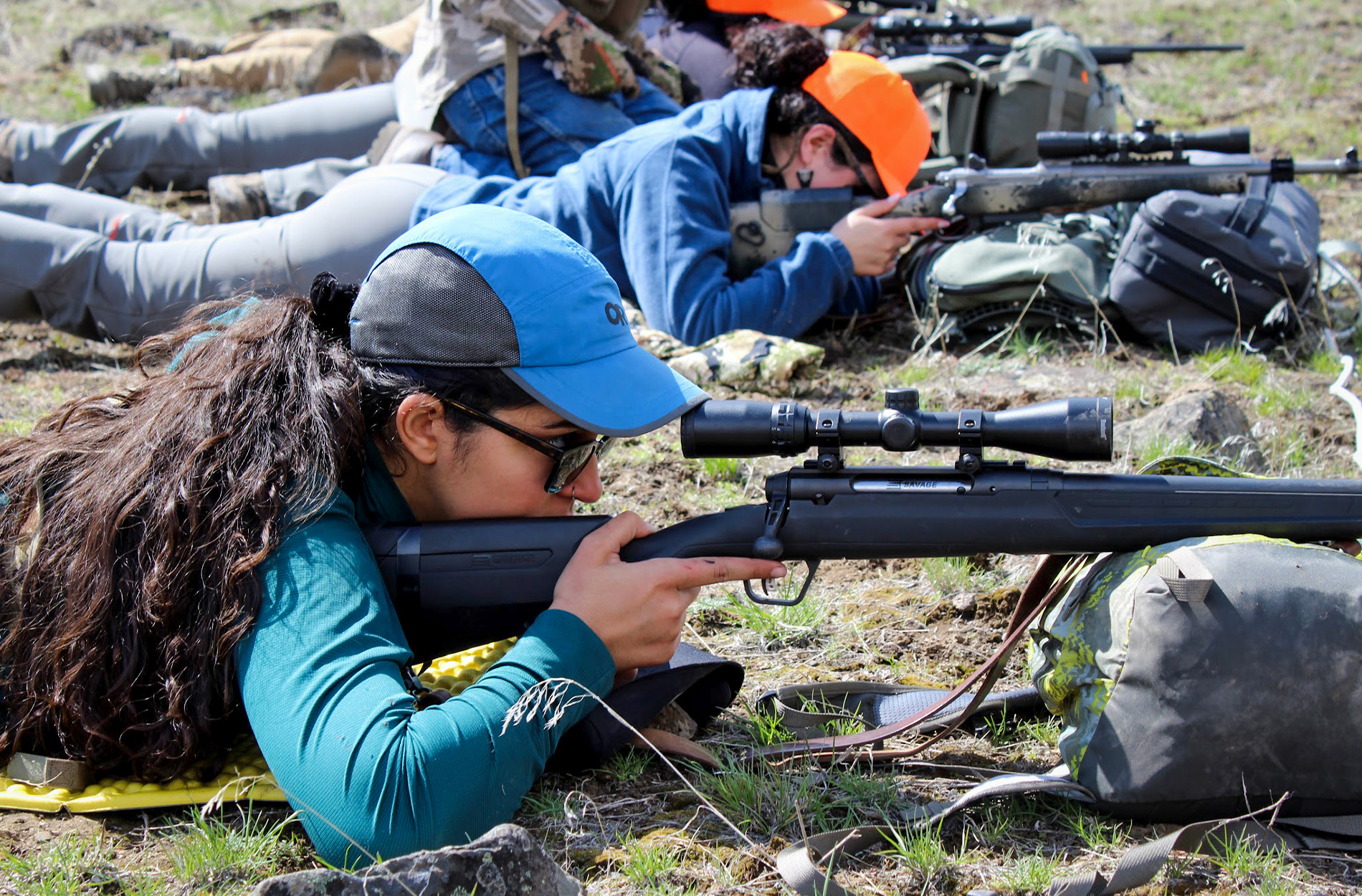
Photograph courtesy HOC
This leaves folks like Flatt and his cofounder Parker holding a sparsely populated center floor in a polarized panorama. The on a regular basis wrestle to bridge these opposing worldviews is what led Parker to step down as government director in November — or as she places it, to “break up” with the looking trade.
In an open letter explaining her choice to stroll away from the group she helped construct, Parker talks in regards to the challenges she confronted throughout her brief tenure as government director. She calls out the tokenism and denial coming from sure teams within the looking trade, and she or he mentions the threats she’s acquired from individuals who’ve referred to as her an “offended Indian.” She expresses the fixed disappointment of making use of for grants meant to fund range, fairness, and inclusion efforts, solely to see them awarded to white-led organizations.
“I used to be informed that the looking group wasn’t prepared for Hunters of Coloration. That they weren’t prepared for racial fairness,” Parker writes. “I hoped that individual was unsuitable however they had been proper.”
It’s true that some folks within the looking group weren’t fairly prepared for Parker’s model of HOC, as she supplied some strongly worded critiques on looking tradition throughout her time as government director.
“There’s a colonized mindset current prevalent [sic] in loads of Western looking that places people above nature … and that mindset lets you dominate nature,” Parker stated in an interview with Native Information On-line in 2022. “That’s one thing we’re making an attempt to decolonize. We are saying we now have an settlement with nature, we’ll maintain her, she’ll maintain us.”
Flatt agrees hunters can profit from analyzing our relationship with nature, however he’s additionally taken a special method than Parker as he tries to foster goodwill and open new alternatives quite than change present hunters’ mindsets. Nonetheless, as HOC shifts into its subsequent gear, Flatt stays unapologetic about the truth that the looking group wants extra folks of shade, whether or not it’s prepared for them or not.
Paying It Ahead
By the top of our week in Central Washington, Johnson’s tag remains to be the one one crammed by the group of mentees, and he’ll share the meat with everybody earlier than he drives again to town.
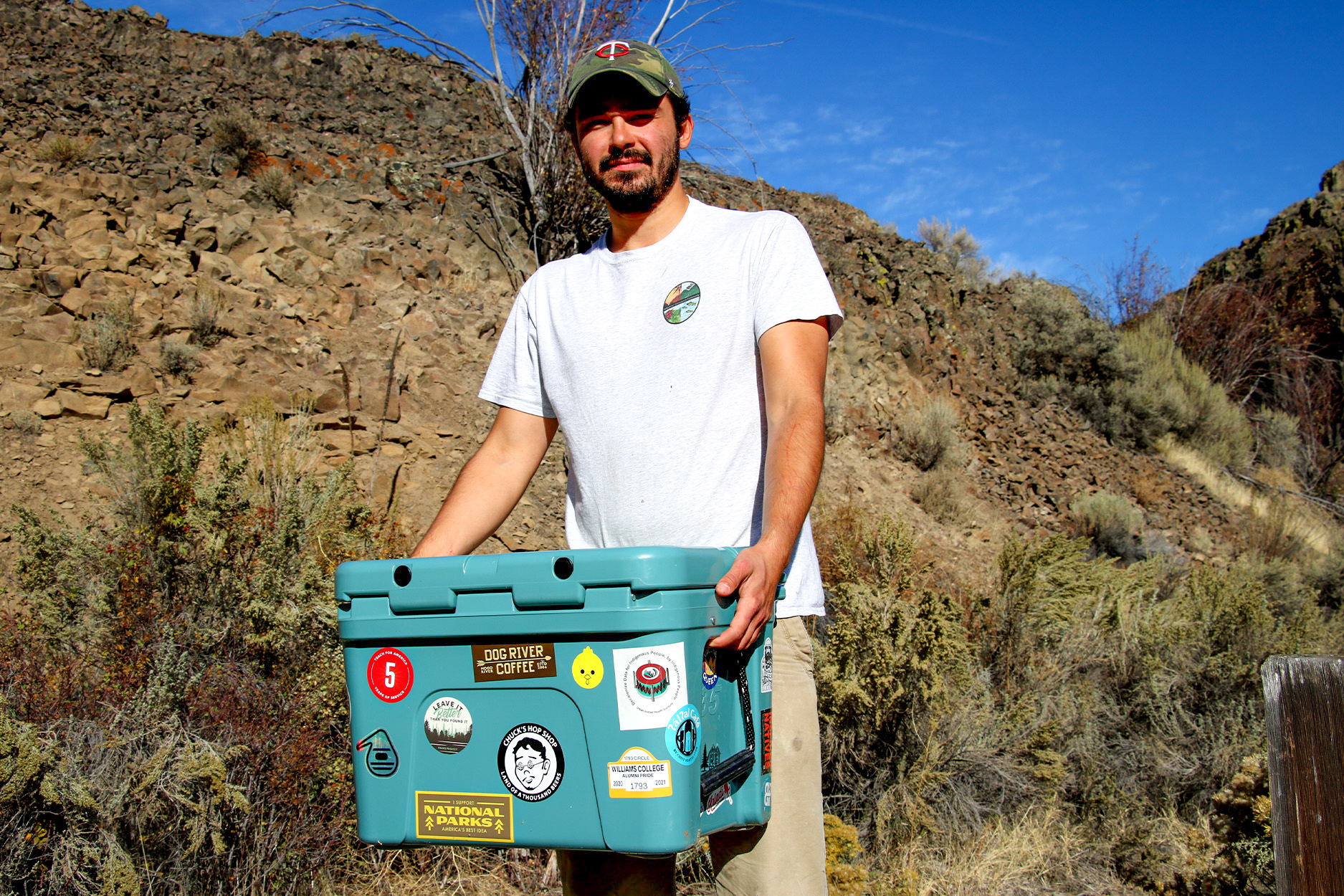
Photograph by Dac Collins
It’s a easy however historical gesture that he’ll profit from in a number of methods. Other than the gratification of sharing with newfound buddies, he’ll get a minimum of one bowl of chili from the stash of venison he gave Hentati. The 2 stay in the identical Seattle neighborhood, the place they’ve been hanging out for the reason that spring, poring over maps and planning future hunts.
“It’s fairly actually all I take into consideration,” Johnson says whereas packing his cooler on the final day. “For me, looking is that this bodily exercise the place I can interact with wildlife and develop this relationship with them … We speak [in our culture] about how we’re pitiful. How I’m a hungry, pitiful Anishinaabe and I’m asking you [the animal] to present your self to me. So, I feel we form of owe it to those animals to present it every thing we now have and never maintain again.”


